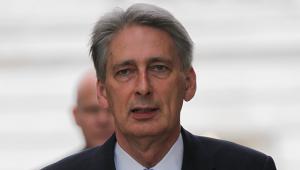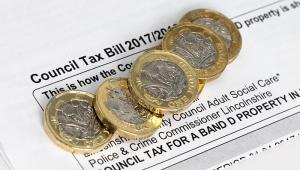This would be based on a 3 pence tax on all income bands going to local authorities, the Institute for Fiscal Studies proposed in a report out today.
Levying a local income tax on top of national income tax would be “the most feasible option” if the government wanted to devolve tax to councils, the IFS said, but added it would not be a “panacea” for wider funding issues.
It also said: “A local income tax would still involve some additional administration and compliance costs, and mean tackling a number of tricky technical issues.”
Currently the only taxes devolved to English local authorities are council tax, which generates £28bn annually, and business rates, which yields £24bn a year.
Researchers noted that a local income tax would incentivise councils to grow local economies and raise income and employment while giving them a revenue stream that automatically keeps pace with inflation and economic growth.
The report Taking control: which taxes could be devolved to English local government? said income tax is a “buoyant source of revenues which grows as inflation and economic growth boosts incomes”.
Council tax and business rates, on the other hand, must be increased manually each year just to keep pace with inflation, which can be “politically difficult”, according to the report.
Tom Harris, researcher at the IFS and author of the report, said: “While tax devolution could give councils more options and discretion over how to raise funding, it is not a panacea for their funding issues. Addressing these ultimately requires either tax increases (whether via local or national taxes) or lower expectations of what councils can provide in future.”
While more feasible than devolving other taxes, such as stamp duty and corporation tax, a local income tax would also have some drawbacks, the IFS noted.
The think-tank calculated that a flat-rate tax across all bands would be six times higher in richer parts of west London compared to areas like Hull and Leicester, and suggested a system to redistribute revenues between councils would be necessary to avoid “huge disparities”.
Income tax rates which varied across areas would also be more complex for employers, taxpayers and HMRC, it added.
David Phillips, associate director at the IFS and author of the report, said: “A local income tax looks to be the best option if the government wanted to pursue significant tax devolution. However, there would still be a trade-off between the stronger financial incentives and greater local control that tax devolution brings, and the risk of bigger divergences in funding to go alongside this.”
The IFS highlighted recent interest amongst local authorities in alternative ways of raising revenue, such as a tourist tax, which was recently approved in Edinburgh. The think-tank said while such a tax was administratively feasible, it would only be effective in a few places.
It also estimated that a £5 overnight stay tourism tax would raise just £2.1bn annually, compared to the £19.3bn from a local income tax. And a local corporation tax would raise £7.8bn, according to the report.
Neil Amin-Smith, researcher at the IFS and author of the report, said: “It’s easy to see why such tourism taxes are attractive to councils – they could use them to raise revenues without directly levying a tax on their own voters.
“However, tourism taxes could raise useful amounts only in some heavily-visited parts of the country and even set at a relatively high rate of £5 per night, would raise just £2bn across England – less than 5% of councils’ core budgets.”
Richard Watts, chair of the Local Government Association’s resources board, said: “The UK is one of the most centralised economies in the western world.
“Councils have called on the government to consider allowing areas to retain a proportion of nationally collected taxes paid by their residents, such as income tax or stamp duty, along with appropriate redistribution arrangements and control over discounts and reductions.”
Joanne Pitt, CIPFA policy manager, local government, said: “We welcome this new research from the IFS which sets out the clear need for radical, long-term change to restore sustainability of local services. However, we recognise that local income taxes have been explored in the past and requires political support.
“Immediate action is needed to alleviate the fiscal pressures faced by councils.”
A government spokesman said: “We are delivering on our devolution agenda by empowering local people across the country to make the decisions that affect their communities.
“The UK has a fair and balanced tax system, and we have no plans to introduce income tax-raising powers at local level.”
CIPFA analysis recently found that England faces a council tax increase of 4.5% in the coming year.











